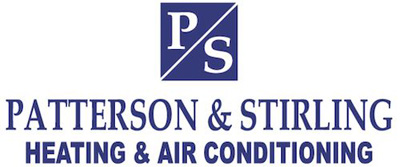
We spend lots of time indoors. In reality, the Environmental Protection Agency (EPA) has approximated being indoors accounts for 90% of our schedule. However, the EPA also says your indoor air can be three to five times dirtier than outdoors.
That’s because our residences are firmly sealed to increase energy efficiency. While this is great for your utility expenses, it’s not so great if you’re a part of the 40% of the population with respiratory allergies.
When outdoor ventilation is restricted, pollutants such as dust and volatile organic compounds (VOCs) can get trapped. As a result, these pollutants can aggravate your allergies.
You can boost your indoor air quality with fresh air and regular dusting and vacuuming. But if you’re still struggling with symptoms when you’re at your house, an air purifier might be able to provide relief.
While it can’t eliminate pollutants that have gotten trapped in your furnishings or flooring, it can help clean the air moving around your residence.
And air purification has also been scientifically proven to help lessen some allergic symptoms, according to the American College of Allergy, Asthma and Immunology. It could also be useful if you or a family member has a lung condition, including emphysema or COPD.
There are two options, a portable air purifier or a whole-home air purifier. We’ll discuss the distinctions so you can determine what’s appropriate for your home.
Whole-House Air Purifier vs. Portable Air Purifiers
A portable air purifier is for one room. A whole-house air purifier accompanies your HVAC unit to purify your entire residence. Some models can clean on their own when your HVAC system isn’t on.
What’s the Best Air Purifier for Allergies?
Go after an option with a High Efficiency Particulate Air (HEPA) filter. HEPA filters are used in hospitals and provide the best filtration you can buy, as they catch 99.97% of particles in the air.
HEPA filters are even more beneficial when installed with an ultraviolet (UV) germicidal light. This mighty blend can destroy dust, dander, pollen and mold, all of which are standard allergens. For the best in air purification, evaluate equipment that also has a carbon-based filter to decrease household odors.
Avoid using an air purifier that creates ozone, which is the primary element in smog. The EPA warns ozone may aggravate respiratory problems, even when discharged at small amounts.
The Allergy and Asthma Foundation of America has created a listing of questions to consider when getting an air purifier.
- What can this purifier extract from the air? What doesn’t it extract?
- What’s its clean air delivery rate? (A bigger amount means air will be purified more rapidly.)
- How frequently does the filter or UV bulb need to be replaced]? Can I finish that without help?
- How much do replacement filters or bulbs cost?
How to Reduce Seasonal Allergy Symptoms
Want to receive the {top|most excellent|best] results from your new air purification equipment? The Mayo Clinic suggests doing other steps to reduce your exposure to things that can trigger seasonal allergies.
- Stay inside and keep windows and doors sealed when pollen counts are heightened.
- Have other family members trim the lawn or pull weeds, since these tasks can worsen symptoms. If you must do these chores alone, you may want to consider wearing a pollen mask. You should also rinse off without delay and put on clean clothes once you’re done.
- Avoid hanging laundry outside.
- Run your air conditioner while at home or while in the car. Consider adding a high efficiency air filter in your home’s home comfort equipment.
- Equalize your house’s humidity saturation with a whole-house dehumidifier.
- Hardwood, tile or linoleum are the ideal flooring types for decreasing indoor allergens. If your residence has carpet, add a HEPA filter on your vacuum cleaner.
Let Our Professionals Manage Your Indoor Air Quality Requirements
Ready to move forward with getting a whole-house air purifier? Give our professionals a call at 814-739-6977 or contact us online to schedule an appointment. We’ll help you find the right equipment for your home and budget.



